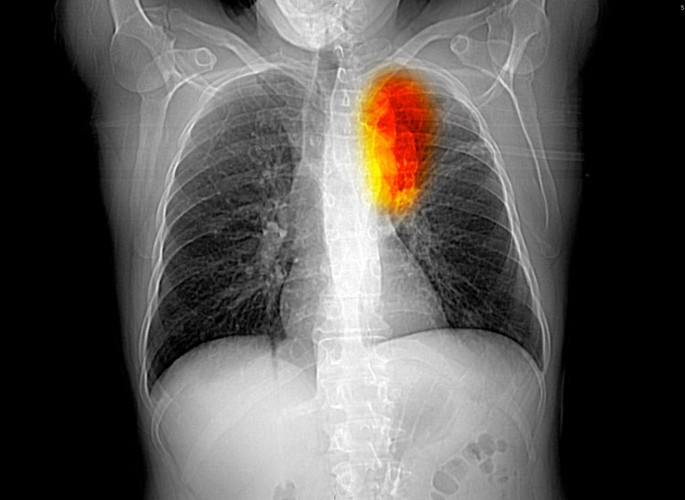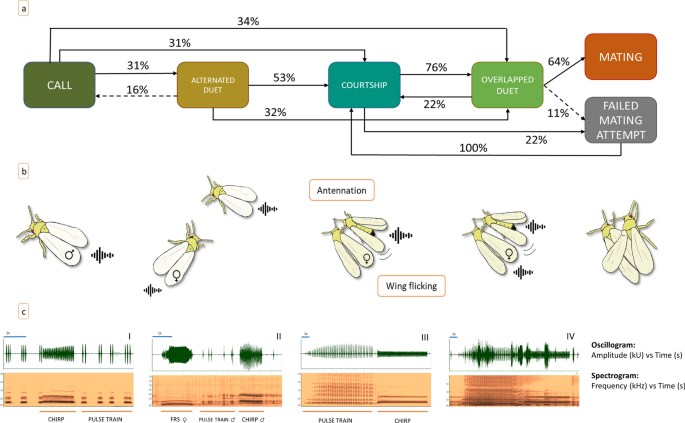
- Select a language for the TTS:
- UK English Female
- UK English Male
- US English Female
- US English Male
- Australian Female
- Australian Male
- Language selected: (auto detect) - EN
Play all audios:
Establishing bases The University of Oxford, UK, announced on 23 October that it would be collaborating with the California-based Chan Soon-Shiong Family Foundation (CSSFF) to establish a
new facility for genomic medicine in the UK, the first of its kind. Called the Chan Soon-Shiong Oxford Centre for Molecular Medicine (CSSOCMM), the facility will be housed within the
university's new Precision Cancer Medicine Institute, a clinical research facility that will conduct research on new drugs, new imaging options and proton beam therapy. CSSOCMM is being
funded by a $50 million grant to the university by the CSSFF and will provide molecular sequencing of tumors for patients, which will help inform the treatment the patients receive.
Flawed security Following a major data breach in October 2013 on the US Food and Drug Administration's (FDA's) website, the US Office of Inspector General (OIG) audited the website by
running a test last year, the results of which were reported on 21 October of this year. The audit found several vulnerabilities on the FDA website: the website did not go into an automatic
lockout after several failed attempts to log in to machines, and there were gaps that could have allowed for malware to be placed on the FDA's website. “The vulnerabilities are collectively
and, in some cases, individually significant and could potentially lead to a cyber-breach if not addressed,” Mary Kahn, a spokesperson for the OIG, wrote in an email to Nature Medicine.
According to the audit report, the FDA has addressed the findings, but the OIG has yet to verify these updates.
Research regrouping Young adults between the ages of 18 and 26 should be considered as a separate group in clinical trials rather than as adults, recommends a 30 October report from the US
National Research Council and the Institute of Medicine. The report argues that, similarly to early childhood, early adulthood should be considered a special period of development. The
period is associated with several social and biological changes, many of which continue into the early- to mid-20s. Today's young adults also live in conditions dissimilar to those
experienced by the generations before them, said the report, including their tendency to eat more fast food and their difficulty in landing jobs. These and other similar factors play a
considerable role in shaping the physical and mental health of this population group, making them a prime focus for research and policy.
Cancer screenings The US Centers for Medicare and Medicaid Services (CMS) proposed on 10 November that lung cancer screenings via low-dose computed tomography (LDCT) scans be covered for
patients on Medicare. The proposal, which is currently under a 30-day period for receiving formal comments, also stated that this benefit would only be provided once a year and only if the
patient meets all of the eligibility criteria, including being asymptomatic of lung disease, having smoked at least one pack—20 cigarettes—per day for 30 years and being between the ages of
55 and 74. Patients would also have to meet and talk with a doctor about the pros and cons of getting this radiation-based scan. An independent analysis conducted in August estimated that a
single screening for the nearly 5 million people eligible for this benefit would cost roughly $240.
Ministomachs Researchers grew, for the first time, pea-sized human stomachs made from pluripotent stem cells, according to a study published in Nature (doi:10.1038/nature13863) on 29
October. Called gastric organoids, these ministomachs were also tested for their responses to the Helicobacter pylori bacterium, which is responsible for gastric diseases, including stomach
ulcers and certain stomach cancers. Upon injecting these cells with H. pylori, the researchers observed that the bacteria attached to the organoids as though they were real human cells. “The
model provides a new opportunity to study infections and the microbe-epithelium interactions,” says Jason Spence, a stem cell biologist at the University of Michigan Medical School in Ann
Arbor, Michigan, and a co-author on the study. The researchers are also testing this technique in mice to see whether stomach tissue damaged by ulcers can be replaced with newly grown
tissue.
First shot The FDA gave accelerated approval status on 29 October to Trumenba, a vaccine aimed at preventing serogroup B meningococcal disease caused by the Neisseria meningitidis bacterium.
In 2012, 160 of the nearly 500 cases of meningococcal disease in the US were caused by the serogroup B strain, which was also responsible for the 2013 meningitis outbreaks at Princeton
University and the University of California, Santa Barbara. “The FDA's approval of Trumenba provides a safe and effective way to help prevent this disease in the United States,” said Karen
Midthun, director of the FDA's Center for Biologics Evaluation and Research, in a press release. Currently available vaccines target four of the five N. meningitidis groups, but the approval
of this vaccine, manufactured by a subsidiary of New York–based Pfizer, means all groups can be targeted.
Ousted chief Following a unanimous decision by the Sanofi board of directors on 29 October, Christopher Viehbacher, the company's CEO, was fired from his position at the helm of the drug
giant. Viehbacher joined Sanofi in 2008 after he lost to Andrew Witty over the position of chief executive of London-based GlaxoSmithKline. In 2011, Viehbacher famously coordinated the
acquisition of the Cambridge, Massachusetts–based company Genzyme, giving Paris-based Sanofi both a US base for operations as well as the opportunity to delve into the market for drugs for
rare diseases. The chairman of Sanofi's board, Serge Weinberg, will serve as the chief executive until a replacement for the position is found.
Fraud charge Caroline Barwood, a former researcher at the University of Queensland (UQ) in Brisbane, Australia, was served with a notice from Queensland's Crime and Corruption Commission on
31 October to appear in court for six charges relating to scientific fraud. Barwood, who studied Parkinson's disease while at UQ, and her co-author and fellow UQ researcher Bruce Murdoch,
have had three papers retracted after UQ found no evidence of the studies in question ever having been conducted. In a statement to the blog Retraction Watch, Barwood said she was “shocked”
by the allegations, saying that she “had no input in the original paper.” Barwood was granted bail on 5 November and is due to appear for a committal mention on 8 December. Murdoch resigned
following the retraction of the papers and, as Nature Medicine went to press, no charges were brought against him.
Quarantine quarrels US nurse Kaci Hickox dominated headlines as she fought the states of Maine and New Jersey over a mandatory quarantine. Hickox returned from working to treat patients with
Ebola with Doctors Without Borders in Sierra Leone on 24 October and was held in an isolation tent in New Jersey for having an elevated temperature. She was soon allowed to return to her
home in Fort Kent, Maine, but despite testing negative for Ebola virus, she was placed under a 21-day quarantine. Hickox defied the mandate by going on a bike ride, prompting Maine officials
to seek a court order against her. The judge sided with Hickox, who was disputing the court order, saying she could move freely as long as she agreed to regular monitoring. Hickox also
announced that when her monitoring period ended on 10 November, she would be moving away from Fort Kent as a result of this situation.
Pricey payback Columbia University in New York has agreed to pay more than $9 million to settle a lawsuit claiming it had abused its role as grant coordinator of the International Center for
AIDS Care and Treatment Programs (ICAP), a part of Columbia's Mailman School of Public Health. Columbia admitted to receiving federal grants for work that was not being devoted to the
appointed projects. The lawsuit, which was settled with the on 28 October, was the result of a whistleblower complaint lodged by former ICAP director Craig Love in 2011. “We admire and
applaud Columbia's work in combating AIDS and HIV,” said US attorney Preet Bharara, who is overseeing the case, in a statement. “But grantees cannot disregard the terms under which grant
money is provided.”
Applied science In an effort to expand its investment in biomedical science, the Chinese government announced on 29 October the opening of the National Centre for Translational Medicine in
Shanghai. The center, whose construction is scheduled to finish in 2017, cost the government 1 billion renminbi ($163 million) and is the first of five planned centers dedicated to
translational and clinical science. The institution is slated to focus on researching treatments for heart disease, stroke, metabolic diseases and cancer. China has historically invested
more in basic biomedical research than translational work and, as a result, has lost clinical scientists to places such as the US. But the center's officials hope that its establishment will
not only accelerate China's biomedical achievements but also attract some talent back to China.
Anyone you share the following link with will be able to read this content:








